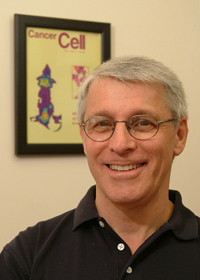Discovery spotlights key role of mystery RNA modification in cells
Researchers had known for several decades that a certain chemical modification exists on messenger ribonucleic acid (mRNA), which is essential to the flow of genetic information. But only recently did experiments at the University of Chicago show that one major function of this modification governs the longevity and decay of RNA, a process critical to the development of healthy cells.
The chemical modification on mRNA in question is called N6-methyladenosine (m6A). A recent study by UChicago scientists reveals how the m6A modification on mRNA could affect the half-life of mRNA that in turn regulates cellular protein quantities. That discovery could provide fundamental insights into healthy functioning and disorders such as obesity, diabetes and infertility. (more…)

